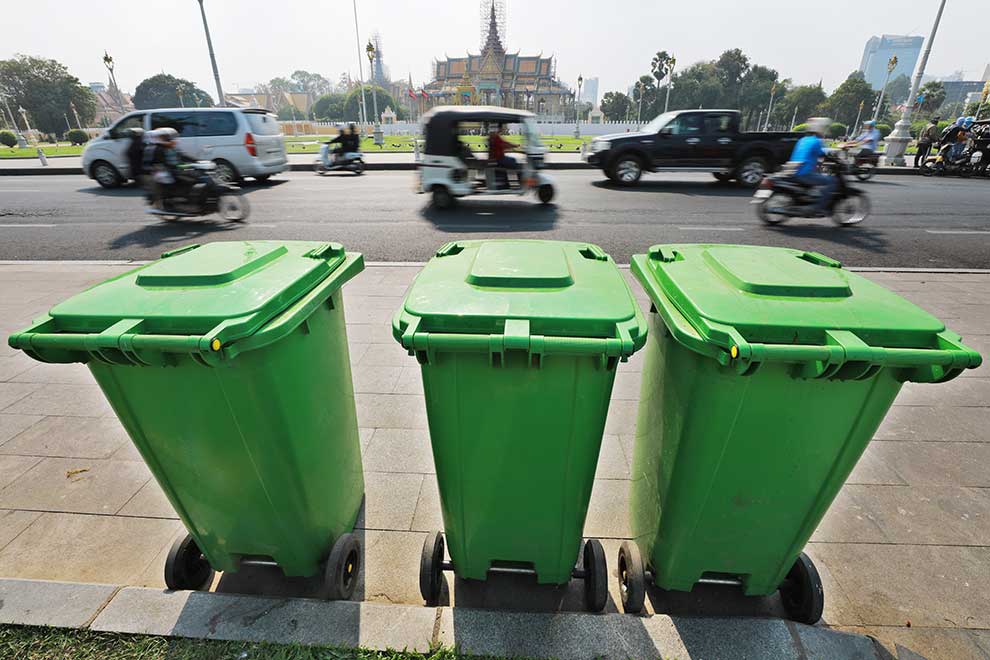
Three rubbish bins placed on the street for public use in Daun Penh district on January 16. Hong Menea
The Phnom Penh Municipal Hall has reminded the public to separate their rubbish, as strict measures, including fines and other legal action, will be imposed soon.
The reminder came during a meeting last Friday between municipal deputy governor Huot Hay and district governors to discuss the new waste rules, issued by the governor last September.
According to the rules, wet waste includes food leftovers, organic waste, fruit and flowers and must be placed in black plastic bags. Dry waste includes paper, paper cases, plastic, steel, rubber products, bottles and cans – all of which should be placed in white plastic bags.
The instructions said waste collection companies will only collect rubbish that has been sorted correctly. Waste that is not sorted in this manner will not be collected.
Implementation of the rules began in November, and the meeting was a reminder for all commune officials to follow the instructions and disseminate the information to villagers. This was an awareness campaign, before the city hall began enforcing strict measures, Hay said.
“Implementation of the rules has not been strictly enforced, because we have not yet informed every household of the new changes. We have made 600 copies of the instructions for each commune,” he said.
“We have also printed 500,000 pamphlets to be distributed to households. This will ensure that every household understands what time they should dispose of their waste, and what time the truck will collect it. We will explain all of these things before we impose fines,” Hay added.
He said since the instructions were released to the public four months ago, the residents seem to understand the regulations.
“If they have learned the rules and still violate them, we will impose fines according to the law,” he said.
Hay said hygiene agents in each commune in the capital would have to focus on their duties in the run-up to fine enforcement, which will begin in February.
“From February, Phnom Penh authorities will start enforcing the laws and regulations that are in place. Authorities will refer to court those who dispose of solid waste without sorting wet waste from dried waste, and those who dispose of rubbish outside their time slot,” Hay said.
Hay said each of the three collectors – 800 Super, Mizuda Group, and CINTRI – have tens of thousands of rubbish bins for the public to use.
“Mizuda Group, which is in charge of collecting waste in five districts – Daun Penh, Prampi Makara, Dangkor, Kamboul and Por Sen Chey – have placed 30,000 rubbish bins,” he said.
“For these five districts, located in the capital centre, waste disposal is allowed from 6-9 pm, then the company will collect the waste from 9pm until the morning. Anyone disposing of rubbish outside of these hours will be fined,” he added.











